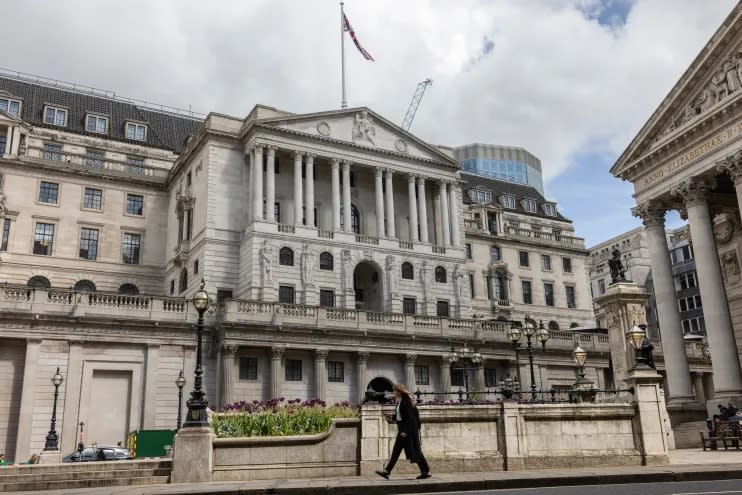Leading economists expect Bank of England to cut interest rates in spring

Top economists have brought forward their expectations for the Bank of England’s next interest rate cut to as soon as March and overwhelmingly see its monetary policy as too hawkish, according to a City A.M. poll, after promising signs in the battle against inflation.
Markets have already priced in aggressive rate cuts for the first half of 2024, with investors betting that inflation will keep cooling and high borrowing costs will dampen economic growth.
Nearly a third (29 per cent) of the 21 experts surveyed believed the central bank would cut rates in March, while 24 per cent said they would be lowered in May.
A further 19 per cent said the next cut would come in June, while the latest bets were for August (29 per cent). The most hawkish economists polled by City A.M. in November bet on a cut sometime in 2025.
Most economists in November expected a cut between May and August, although a sharp slowdown in inflation has since added pressure on the Bank to lower rates sooner.
Inflation data from the Office for National Statistics (ONS) published the week after the Bank’s latest monetary policy meeting came in below expectations and bolstered hope for near-term rate cuts.
The consumer price index (CPI) was 3.9 per cent in November, down from 4.6 per cent the month before, partly thanks to lower food and petrol prices. Economists had expected a figure of 4.3 per cent.
In its November round of forecasts, the Bank predicted that inflation would only fall to 3.1 per cent by the end of next year.
Last month, the bank voted to hold interest rates at a 15-year high of 5.25 per cent for a third time in a row, which some criticised as too hawkish considering improvement shown in several key metrics.
Despite promising wage growth and CPI figures, members of the Bank’s nine-strong Monetary Policy Committee (MPC) noted that inflation remained well above the government’s two per cent target and said it was too soon to start thinking about rate cuts.
Nearly 86 per cent of the economists polled by City A.M. said policymakers – three of whom voted to raise rates – were too hawkish in their rhetoric on interest rates as they try to lower inflation without tipping the economy into recession.
Revised gross domestic product (GDP) figures published by the ONS last week showed the UK is on the brink of recession as the Bank’s 14 consecutive rate hikes until September have strangled the economy.
The ONS cut its initial GDP growth estimates to -0.1 per cent in the third quarter from 0 per cent while also revising second-quarter growth figures from 0 per cent to 0.2 per cent.
A formal recession is defined as two successive quarters of GDP contraction.
Most of the economists surveyed (57 per cent) identified wage growth as the Bank’s biggest concern going into 2024.
Over its recent meetings, the Bank has pointed to high levels of wage growth and a tight labour market as justification for holding rates. Policymakers see bigger pay packets as a sign that inflation is domestically driven.
Latest wage growth data came in below expectations at 7.3 per cent, down from summer peaks but still inconsistent with the two per cent target.
Last week, Ben Broadbent, a deputy governor at the Bank, said he would need to see “further evidence” of easing wage pressures.

 Yahoo Finance
Yahoo Finance 